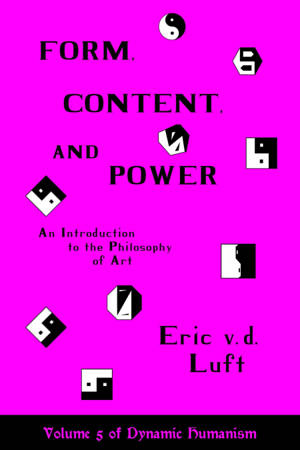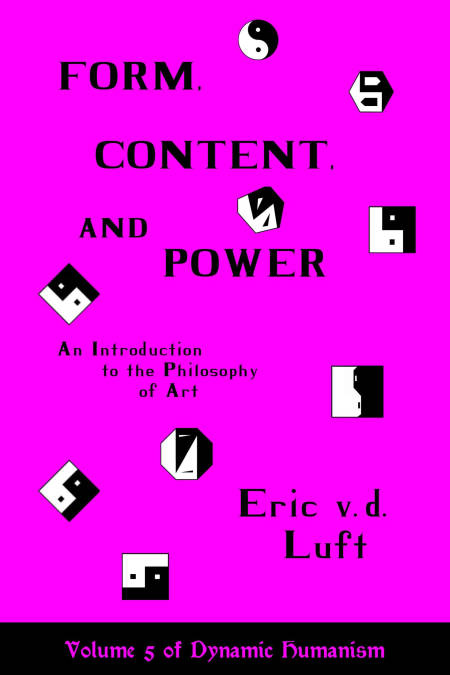
- Retrait gratuit dans votre magasin Club
- 7.000.000 titres dans notre catalogue
- Payer en toute sécurité
- Toujours un magasin près de chez vous
- Retrait gratuit dans votre magasin Club
- 7.000.000 titres dans notre catalogue
- Payer en toute sécurité
- Toujours un magasin près de chez vous
Form, Content, and Power: An Introduction to the Philosophy of Art EBOOK
Dynamic Humanism, #5
Eric v.d. LuftDescription
This book is meant to be disconcerting. It asks many more questions than it answers, but perhaps that is how philosophy should be, especially if the questions posed are capable of rousing interest in a topic and stimulating individual thought. It challenges, sometimes attacks, and even ridicules, various traditions and theoretical positions in the history of the philosophy of art, not for merely destructive or polemical purposes, but rather to encourage insightful readers to proceed beyond these positions in their own minds. Its arguments are not didactic and its conclusions are not dogmatic, but evocative and provisional, in the hope that its readers will confront them with a vigor at least equal to that with which these arguments and conclusions have already confronted the traditional opinions.
Its general aims are (1) to try to answer the basic questions: "What is art?" and "What is good art?" and (2) to try to develop a unified theory of art, i.e., a theory which would embrace and be equally applicable to all types and media of art, from architecture to rock songs, from symphonies to sculpture, from Shakespeare to street graffiti. Toward this second aim, it examines the traditional concept of beauty and finds it incoherent, undefinable, philosophically unsatisfactory, and incapable of serving as the ground of any rigorous unified theory of art, because it cannot, without equivocation, be made equally applicable to all sorts of art. Thus, instead of beauty, it proposes the concept of power, which can be clearly and precisely defined and which is not only universally and univocally applicable, but also rich enough as a concept to be able to shed light on the whole idea of art.
It is not a difficult book. It is written for people at all levels of erudition from college frosh to tenured professors. It does not aim primarily toward any level, and tries not to pander, but presents interpretations within the philosophy of art which should be both sufficiently original to provide grist for the professors' speculative mills and at the same time sufficiently lucid for beginning students to be able to grasp the main ideas. In short, the book aims to become both a course textbook and a work which will be discussed at scholarly conferences and written about in journal articles. At least with regard to this twofold aim, to be simultaneously intelligible to tyros and interesting to experts, and its consequent claim to a broad audience, it is akin to such works as John Dewey's Art as Experience, Robin Collingwood's The Principles of Art, or Susanne Langer's Philosophy in a New Key.
Spécifications
Parties prenantes
- Auteur(s) :
- Editeur:
Contenu
- Langue:
- Anglais
- Collection :
Caractéristiques
- EAN:
- 9781933237718
- Date de parution :
- 16-07-24
- Format:
- Ebook
- Protection digitale:
- /
- Format numérique:
- ePub







